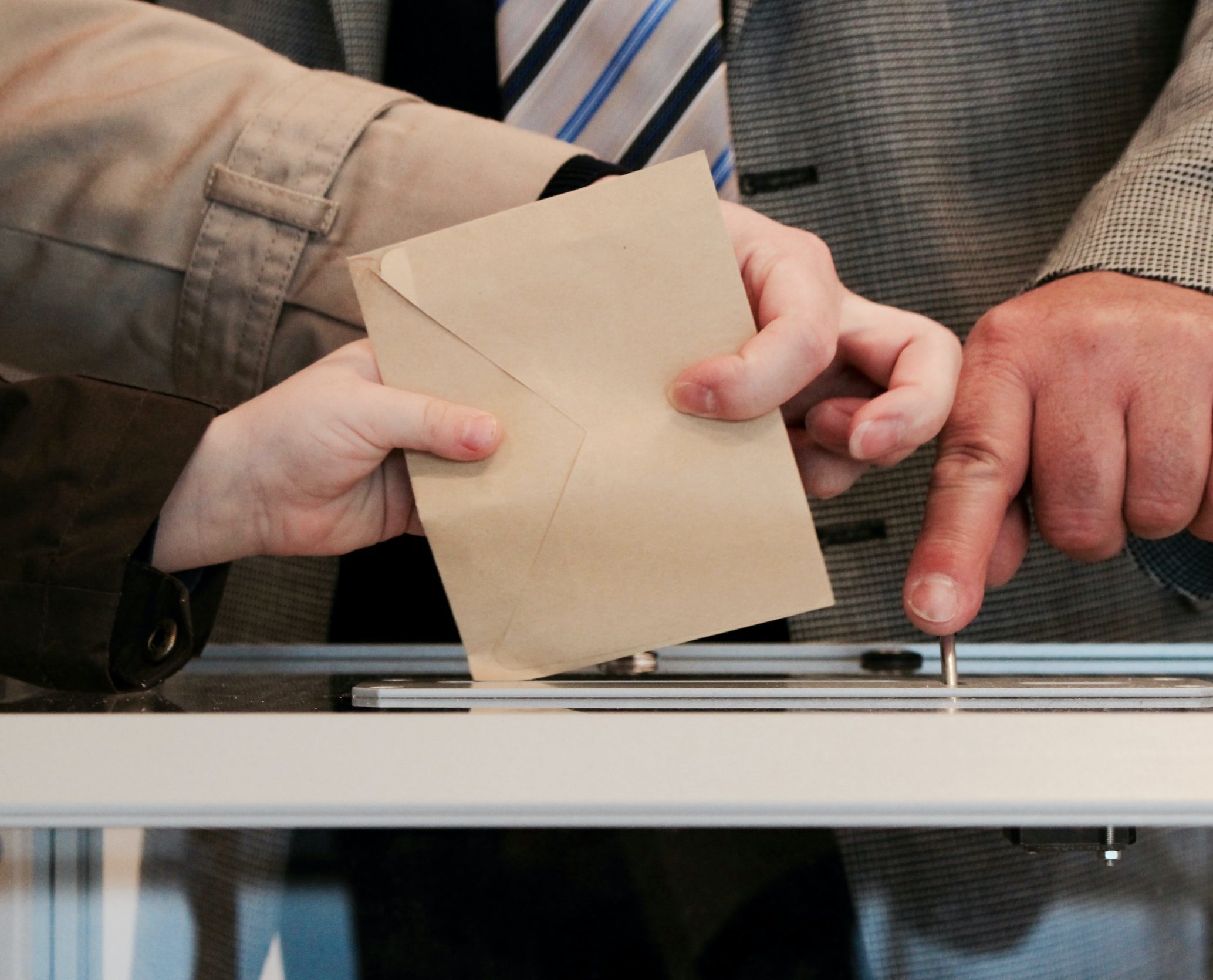Posts tagged Jennifer Abruzzo

CT’s ‘captive audience’ law challenged in federal lawsuit
November 2, 2022 // Connecticut’s ban on “captive audience” meetings, which unions say are used to thwart organizing, is unconstitutional and a preemption of federal labor law, a coalition led by the U.S. Chamber of Commerce claimed in a lawsuit filed Tuesday in U.S. District Court in Hartford. The lawsuit, joined by the Connecticut Business and Industry Association and trade groups representing retailers and others, says the ban violates free-speech and equal-protection rights under the Constitution by “chilling and prohibiting employer speech” with their workers. The defendants in the lawsuit are Commissioner Danté Bartolomeo of the state Department of Labor, the department itself, and Attorney General William Tong. Chris DiPentima,

Workers Should Be Able to Hear from Both Sides Before Union Votes
October 27, 2022 // To labor activists such “captive audience” mandatory meetings constitute union-busting. National Labor Relations Board General Counsel Jennifer Abruzzo has asked the full board to outlaw the practice. (The board has thus far not acted on her request.) Congressional Democrats have tried to get rid of them too. The pro-union Protecting the Right to Organize Act would prohibit companies from making the meetings mandatory. The legislation has stalled in the Senate. There is no good reason why managers shouldn’t be able to make a pitch to workers just like union activists. Collective bargaining is—or at least ought to be—the workers’ choice. They should be able to hear from all sides before they decide.

Voters agree: There’s nothing wrong with employer meetings on unionization
October 13, 2022 // Employers are legally prohibited from interrogating, threatening, or making promises during union organizing efforts, which is when many of these EMUs occur. By contrast, unions have little to no restrictions on their speech, including what they can promise to potential members, making the need for EMUs even more important.
CDW FILES AMICUS BRIEF REQUEST WITH NLRB ON REMEDIES CASE
August 30, 2022 // Board to penalize employers for utilizing their NLRA-guaranteed right to challenge union election results. Abruzzo’s changes would have a chilling effect on employers, leaving them afraid to exercise their rights under the Act. CDW’s amicus brief opposes the General Counsel’s motion for summary judgement in the case as well as Abruzzo’s proposed remedy and the concerning precedent it would set. As we explain in our brief, “[Abruzzo’s] radical proposal would require the Board to overturn one of its most longstanding and established precedents, Ex-Cell-O Corp.,” “chill the rights of every employer seeking to petition the courts to review the Board’s certification of a union as the exclusive representative of the employer’s employees,” “violate the Act, the Constitution, and numerous Supreme Court holdings,” and “severely undermine the integrity of the Board on which the regulated community relies to preserve labor relations stability.” Associated Builders and Contractors, The Chamber of Commerce of the United States of America, National Association of Manufacturers, National Association of Wholesaler-Distributors,
House, Senate GOP Workforce Leaders Demand Investigation into NLRB Misconduct
August 25, 2022 // Today, House Education and Labor Committee Republican Leader Virginia Foxx (R-NC); Senate Health, Education, Labor and Pensions Committee Republican Leader Richard Burr (R-NC); House Health, Employment, Labor, and Pensions Subcommittee Republican Leader Rick Allen (R-GA); and Senate Employment and Workplace Safety Subcommittee Republican Leader Mike Braun (R-IN) sent a letter to National Labor Relations Board (NLRB) Inspector General David Berry to request an immediate investigation into allegations that NLRB officials intervened inappropriately in ongoing union organization efforts at Starbucks stores across the country. Inspector General David Berry,

Op-ed: Worker freedom and choice are still under attack
August 23, 2022 // In one dispute that reached the NLRB , an employee was told if she did not sign an authorization card, “the union would come and get her children and it would also slash her car tires.” In a 2012 United Auto Workers union drive in Chattanooga, Tennessee, workers claimed organizers said that signing cards would only indicate their interest in the union. But this was not true: Signing the card meant they authorized the union to represent them. Unions prefer the card check approach because it allows them to bypass the protections of a secret ballot election and helps them organize more dues-paying members. If an organizer threatens a worker to sign a card, the worker may comply just to get the organizer to go away.
Starbucks must reinstate fired Memphis workers who were pushing for unionizing, judge rules
August 22, 2022 // A federal judge is ordering Starbucks to reinstate seven employees in Memphis who were fired earlier this year after leading an effort to unionize their store. In a decision issued Thursday, U.S. District Judge Sheryl Lipman agreed with the National Labor Relations Board, which had asked the court to intervene in May. Beto Sanchez,
Too radical or not radical enough? US’s top labor lawyer in the spotlight
August 8, 2022 // The top lawyer at the body charged with enforcing US labor law has been hailed as a champion by some and as a “radical” by her opponents. For others involved in the white-hot world of union organizing, she has not gone far enough. Abruzzo’s bona fides are clear. She has repeatedly urged the NLRB’s five-person board to adopt new policies that would make it easier to unionize. She wants the board to prohibit so-called captive audience meetings in which Amazon and many other companies require employees to listen to anti-union speeches from managers and consultants. She wants the board to require employers to grant union recognition once a majority of workers sign cards saying they want a union.

Antitrust and Modern U.S. Labor Markets: An Economics Perspective
August 3, 2022 // Among the most high-profile initiatives of the Federal Trade Commission (FTC) during the Biden Administration has been a focus on using antitrust law to address issues relating to economic inequality, specifically the role that corporate mergers purport to play in undermining labor market competition, and in turn harming workers.[2] Proponents of the FTC’s current approach appeal to academic analysis in support of their argument.[3] We submit that this focus is misguided, and based on flawed assumptions with respect to both the state of the labor market and the purported growth in economic inequality. Rather, we argue, when analyzed correctly, the data regarding workplace flexibility, labor market concentration, and so-called “income inequality” show that, if the FTC continues down this regulatory path, the workers the agency claims to protect will suffer the greatest harm. The application of antitrust law to the labor market is unprecedented and, perhaps more importantly, antithetical to the well-being of workers. For the reasons we explain below, it should be rejected. National Longitudinal Survey, House of Representatives Select Committee on Economic Disparity and Fairness in Growth, Executive Branch,
Unions Are Adding Some Heat in the Kitchen for Food & Beverage Employers
July 27, 2022 // Food and beverage employers can take some important steps before a union-organizing effort that may not be available once an organizing drive begins. First, employers may want to establish effective lines of communication with their employees, including the utilization of a complaint procedure that is practical and efficient. Fostering a positive work culture that treats all employees with dignity and respect is crucial for maintaining effective communication. Second, employers may want to review their employee handbooks and related policies, such as open-door policies, solicitation policies, confidentiality policies, etc., to ensure they are up-to-date and legally compliant. Lastly, employers may want to consider training supervisors to identify and responding to union organizing in a lawful manner. Training can help avoid unfair labor practice charges that could result in significant costs for employers. food and beverage industry
